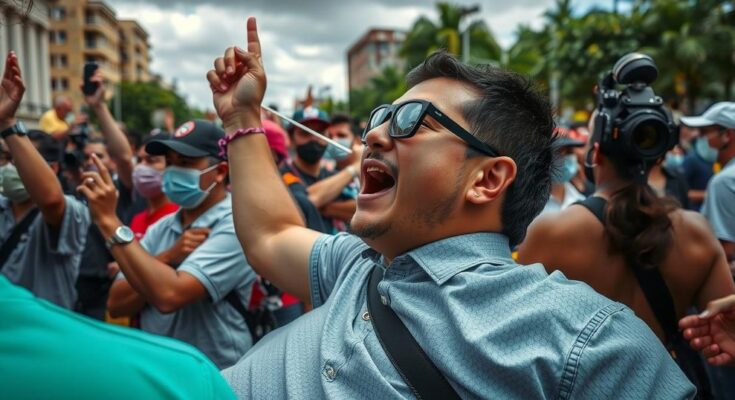Venezuela has released 177 more election protesters, totaling 910 since the July vote. Amid conflicts following the election, many were arrested, with reports of fatalities in custody. International scrutiny persists as the ICC investigates government violence, coinciding with Maduro’s imminent inauguration for a third term and potential shifts in U.S. relations under the Biden administration.
Venezuela has announced the release of an additional 177 imprisoned election protesters, raising the total number of released individuals to 910. This decision follows the controversial elections held on July 28, which resulted in President Nicolas Maduro declaring victory amidst widespread allegations of irregularities and a crackdown on dissent. Since the elections, approximately 2,000 demonstrators were jailed amid protests, which resulted in at least 28 fatalities. Human rights organizations have expressed skepticism regarding the accuracy of the reported releases, citing that at least three detainees have died in custody since the unrest began. While the Venezuelan judiciary upheld Maduro’s electoral success, opposition leaders contest the legitimacy of both the electoral council and the courts, citing them as biased towards the ruling party. The series of releases is also occurring as pressure mounts from the International Criminal Court, which is investigating the violence surrounding previous elections. This wave of liberation arrives just weeks before Maduro is set to be inaugurated for a third term, coinciding with an anticipated shift in U.S. foreign policy under President Joe Biden, stressing the evolving dynamics of international relations involving Venezuela and its leadership.
The political landscape in Venezuela has been tumultuous, especially following the disputed elections in which President Nicolas Maduro was declared the victor. The incident sparked nationwide protests leading to mass arrests, with human rights organizations raising alarms about the treatment of these prisoners and the subsequent violence that ensued. With an ongoing investigation by the International Criminal Court into the government’s actions, this release of protesters appears to be an attempt to mitigate international scrutiny and appease both domestic and foreign observers. The shifting political climate in the United States, especially with the incoming Biden administration, also plays a crucial role in how Maduro’s government navigates its relationship with international partners and adversaries.
In conclusion, Venezuela’s announcement of releasing additional election protesters underscores the complex interplay of domestic unrest and international diplomatic relations. While authorities assert progress towards addressing political prisoners, skepticism from human rights groups persists regarding the conditions leading to detentions and deaths in custody. As Venezuela braces for Maduro’s upcoming swearing-in, the geopolitical landscape, particularly in relation to U.S. policy, remains critical for the future of the country and its leadership.
Original Source: www.aljazeera.com




